A stealth consumer product startup. A sustainable materials firm. A growing brewery. A direct-to-consumer cremation company. An investment firm.
This list may seem like a random cross-section of companies, but they do have a unifying factor, all were founded by former Nike employees.
These entrepreneurs collectively spent decades at Nike, building skills, robust networks and financial resources that they are now putting to work in their own companies.
Portland's startup ecosystem is the better for it.
“Nike is an excellence-driven organization,” said Jon Maroney, general partner at Oregon Venture Fund. “Knowing what that looks like is the first step. It raises the bar for startups in terms of not just starting something but something that could be excellent,” he said. “These ex-Nike people could really be a boost that makes consumer goods more high profile and maybe consumer tech, which we haven’t seen in the past."
Ten years ago there might have been the odd former Nike person heading out on their own — Emma McIlroy of Wildfang or Ian Williams of Deadstock Coffee to name two. But, lately, as the kids would say, there’s been a vibe shift.
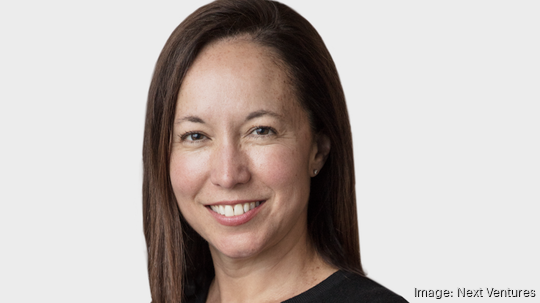
“There is a generation of my peer group of people who’ve spent quite a while building careers at Nike who just sort of feel like there’s more to do and that ‘more’ may not be within the confines of a corporation,” said Melanie Strong, who spent 17 years at Nike running brands such as global skateboarding, NikeWomen and women's training before leaving in 2019 to found the venture capital firm Next Ventures. “Maybe we have something to contribute to a new generation of founders building in the space, whether it's in sports and fitness, or more broadly.”
Nike training camp
Footwear and apparel may be the face of Nike, but with 83,000 global employees, 15,500 of them in Oregon, its workforce is packed with talent with an array of expertise, including marketing and branding, UX design, material sciences, design innovation, packaging, logistics and on and on.
That diversity is evident in the companies founded by ex-Nike employees. Sure, there are startups focused on what you'd expect from Nike vets: workout apparel maker Omorpho, shoemaker R.A.D., diabetes boot manufacturer Foot Defender, even 3D printed shoes from Hilos. But, as mentioned above, there are surprises with companies operating outside the footwear and apparel space.
The Nike bona fides of founders can help those startups attract investors.
Julie Harrelson, managing director of Cascade Seed Fund, has invested in two startups founded by Nike alums: apparel brand Wildfang and cremation company Solace.
Cascade was part of Solace’s $1.75 million seed round in 2021. The fund has already benefitted from the exit of Solace, which was acquired last year by a holding company that owns several funeral industry companies.
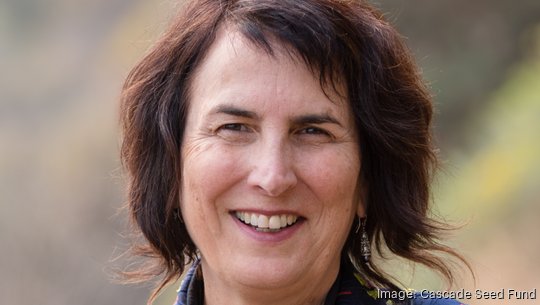
“(Solace founders) were great to work with. The important piece for us is that we have noticed that companies that are successful have a vision for a different future, a clear vision,” Harrelson said. “That is something these guys did, (they focused on) what is an experience that everyone has and (one that) hasn’t been changed for people to have a better experience.”
Solace's founders were also able to self-fund the company's launch.
“Some people that come out of larger companies have stock options that are worth something,” Harrelson said. “And to start you need capital.”
That capital is also making its way to the other side of the startup equation, investing.
Maroney said when he started with OVF in 2015 there weren’t any investors tied to Nike. Now, he said there are about 20 people invested.
Experience at Nike also helps would-be investors and entrepreneurs understand scale and what a truly global opportunity looks like and, importantly, how to get there. For years, even during the height of venture investing in the last software-driven cycle, Portland startups would sometimes be knocked by outside investors for lacking scaling goals on par with companies in places like the Bay Area or Seattle.
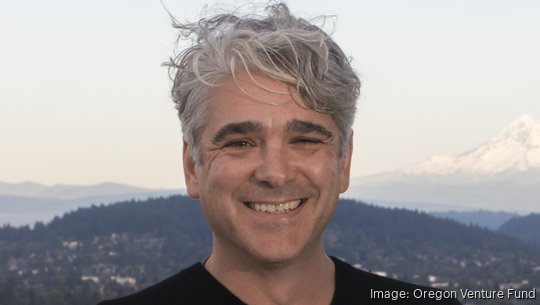
“In Nike’s case, getting to $20 million isn’t the objective,” said Maroney. “Having those types of advisors (or founders) who know a new shoe launch is $100 million in the first two months, how does that DNA get seeped into the system? That continues to be a good thing moving forward.”
There is a flip side related to scale and capital for entrepreneurs coming out of a large organization like Nike, and that is learning to build a product and a company without the deep pockets and creative resources of a corporate parent.
“People used to dealing with very large budgets (might) suddenly realize how difficult the work they were doing actually is,” said Rick Turoczy, founder of Portland Incubator Experiment. “If they were a designer and part of the (greater) infrastructure and (now) being a shoe designer outside an entity like that, they recognize all the challenges they face that weren’t obvious before.”
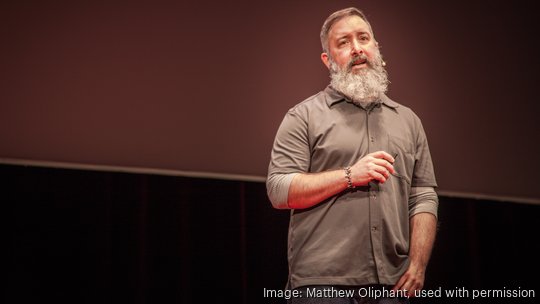
Running solo
So what's behind the uptick in entrepreneurs spinning out of Nike? Startup community members and Nike veterans-turned-entrepreneurs bring up a couple of possibilities. The pandemic made many people reassess their professional futures and the natural evolution of Nike to a global powerhouse.
“When I first had Nike as a client years and years ago, people stayed a long time. People don’t stay in jobs as long,” said Harrelson. “And there are people who have been there eight, 10, 20 years and are ready to do something different.”
The hope, said Next Venture's Strong, is that the "something different" happens in Portland.
“I think the staying in Portland piece is really important,” said Strong, who moved to Oregon to work for Nike. “I hope that when people leave a Nike, or an Adidas, or some of these other sporting goods brands who are building offices in Portland, that there is enough reason for them to want to do it in Portland.”
Read on for examples of ex-Nike employees who are doing just that.
Stealth Co.
David Ngene Jr. worked for a decade in shoe design at Nike, most recently as innovation director. He enjoyed his time behind the berm at Nike world headquarters, but decided to leave this fall and pursue a startup.
“It’s smart to leave something when you are really enjoying it,” he said. That coupled with a reset on priorities after the Covid-19 pandemic and an unexpected family death made this the right time. “I realized this is an opportunity for me to take what I know, take what I learned from a great company like Nike and go apply it to myself and take a chance on myself — we only get one shot at this life.”
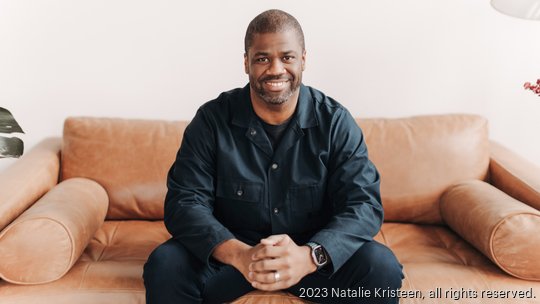
The company is in the early stages and Ngene isn't ready to share details, other than to say it's in the consumer product arena and that it's meant to appeal to younger consumers who want to choose brands that align with their values and that take the future of the planet into consideration.
“This is a fundamental shift and a retraining of consumer behavior,” he said of his plans to turn disposable capitalism on its head.
Ngene and his co-founder, also based in Portland, are self funding the startup but plan to seek angel investment. They completed a shape prototype in October and expect to have test samples in mid-November.
Ngene grew up in Houston and moved to Portland for the Nike job. He’s staying to build his company because Portland is the inspiration.
“The life here, it’s adventure. Our core theme and focus is on that adventure and moving toward it,” he said. “(Portland is) the breeding ground of great thinking for consumerism and how we do it. When we build the product, we aren’t just building the product we are changing the way consumers behave. That is our goal.”
ESG Brands
ESG Brands co-founder and CEO Chase Kahmann spent two years at Nike before leaving in 2020. Co-founder and Chief Technology Officer Eduardo Gonzalez de los Santos retired from Nike after 8 years, his last corporate stint after a 35-year career.
Now, they are leading a team of five that is developing a material that can be used in footwear and apparel that is created from banana stems. ESG's process not only results in a next-generation material, it also creates a readily available natural feedstock and eliminates greenhouse gases that are created under the current method of waste disposal.
“We own a technology that can take agriculture waste from banana plantations and turn it into a textile fiber, and potable water is the byproduct,” said Kahmann.
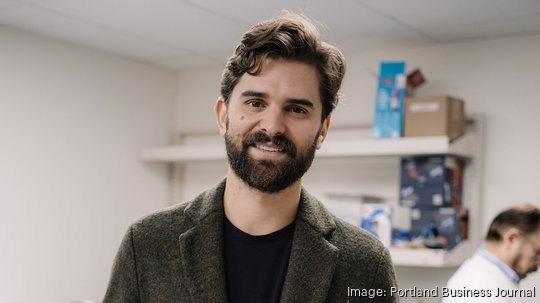
ESG has been developing the process to create the fibers since last year. Kahmann and Gonzalez de los Santos met at Nike while serving on the Nike Explorer Team, which studied sustainability.
They formed ESG in June 2022 and are building the company in Portland because “we are in the epicenter of apparel and footwear,” said Kahmann. “Within a 30-minute drive there are so many conversations that could happen. When we are ready to talk to brands, we are in the ecosystem.”
Plus, Gonzalez de los Santos noted the technology to create the fiber can be applied to other agricultural products including hemp, which is grown in Oregon.
ESG has raised $800,000 so far, including an in-kind investment from the IP venture fund Ideaship. The founders are planning for a $3.5 million seed round to scale production, said Kahmann. ESG is currently working out of the Oregon Bioscience Incubator.
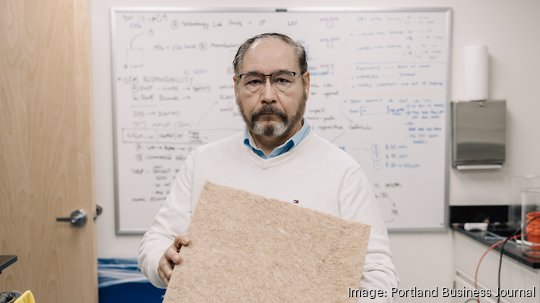
Kahmann and Gonzalez de los Santos said leaving Nike to create their own company has provided the opportunity and space necessary to grow an idea from seed to maturity, something that's not always available in a corporate environment.
“Big corporations are always looking for product that is developed, the tech is mature and can scale tomorrow,” said Gonzalez de los Santos, adding that the first question is always how many tons a year you can produce. “Tech like this requires the scaling time some corporations are not prepared to deal with.”
The global textile industry is a trillion dollar market, and the timing for ESG is right, said the founders. Consumers are demanding next-generation, sustainable materials and that environmental impact is becoming a consideration for more and more companies, said Gonzalez de los Santos.
“As a team we are passionate about sustainability and multiple aspects of this. This isn’t a get rich quick kind of company,” said Kohmann. “We see this as a much larger opportunity over time that can be a really good North Star.”
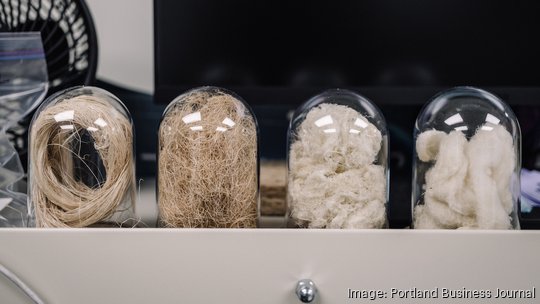
Away Days Brewing Co.
Peter Hoppins spent 13 years at Nike, first in Europe and then in Beaverton. By the end he was senior design director for global football apparel. He left in 2020 to focus full time on Away Days, the brewery that he owns with wife Niki Diamond.
“I reached a level (within Nike) where I didn’t think I was going to get to the next level, and I didn’t want it,” he said, noting the stress he saw in executives further up the ladder than himself.
“If I’m going to be stressed, I’d rather work for myself,” he said.
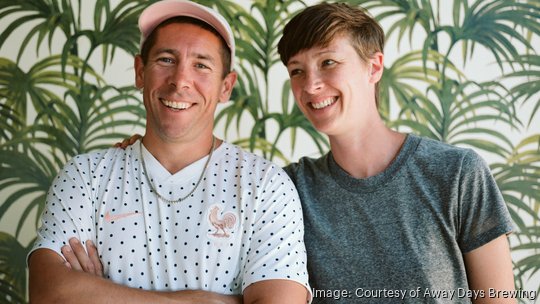
Away Days focuses on European beer styles, the kinds founders Diamond, Hoppins and head brewer Marshall Kunz favor. The couple moved to Portland in 2009 from the U.K. and founded the brewery a decade later. They also founded the Southeast pub Toffee Club, but it shuttered following the pandemic.
They are currently raising funds to support Away Days by selling small business bonds on the online platform SMBX. Proceeds will be used to expand the brewery and open a new 10,000-square-foot facility in Troutdale.
Jumping from apparel design to brewery might not make sense at first blush, but there are important skills learned from his time at Nike that Hoppins is applying to his own business.
“The big thing is long-term thinking. Most local small businesses might have a year plan. We are thinking two, three, four, five years out. That is something ingrained in me,” he said. “Everything we did (at Nike) is two years out. Like, if you are designing the World Cup uni for 2026, you start the work around now.”
And all that work is based on macro trends that influence customer behavior, he said.
“Taking that to a brewery, a brewery might think we need to start making a Hazy IPA because it’s selling right now, instead of thinking in three years what do we want to be known for and understanding that the Hazy trend will come and go,” he said.
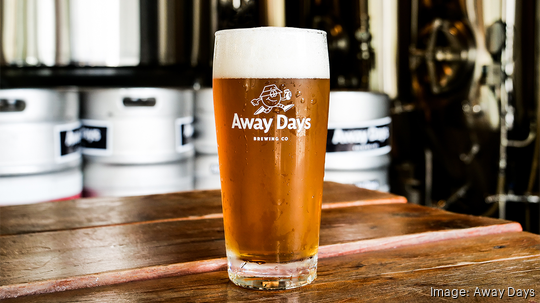
The Away Days brand is rooted in Hoppins' love of British football culture. The name is a nod to fans following their teams to away games in different cities. Aways Days sponsors three rec soccer teams that play in Portland and a running club, investments that deepen the brand name within the community.
“Away Days is the brand. The brewery is part of that. We have elements, like if we want to turn it to merch and have that be a part of revenue, or cider or non-alcoholic or events, they can all be under (the brand),” he said.
Solace
Keith Crawford and David Odusanya both left Nike in 2017 after decades-long careers at the footwear giant. Crawford spent 18 years at Nike, in two stints, the most recent as vice president of design and creative director. Odunsanya was there 17 years and left as vice president and creative director of global brand design.
The two dreamed of opening their own design shop, along with a third partner, a former Nike strategic planner. Once they had the agency up and running, Crawford and Odunsaya decided to incubate their own product ideas.
One area that both men had recent experience with was handling the death of a loved one. They had a firsthand view of what they felt was a broken, sometimes predatory, system, said Crawford.
Their solution: a tech enabled direct-to-consumer cremation service. They called it Solace.
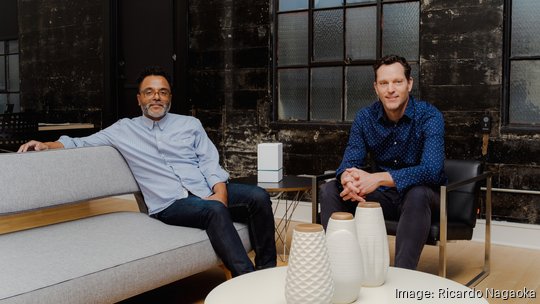
The company launched in 2019, bootstrapped through development by the founders. Eventually, they sought outside capital, starting with friends and family, then a seed round. All told they raised $3.5 million to $4 million, Crawford said.
Investors included Rogue Venture Partners, Cascade Seed Fund and Seattle-based Alliance of Angels. At its peak, Solace had 22 employees. The service was available in Portland, Seattle, Southern California and Northern Florida.
In 2022, just three years after it launched, Solace was acquired for an undisclosed amount.
It was picked up by Florida-based Foundation Partners Group, a holding company that has brands in the funeral and cremation business. Crawford, Odunsanya, the leadership team and the customer-facing team, work for the new owner.
“We weren’t looking for (an acquisition) to happen. It felt like the right time. We thought the opportunity for the idea we set out to create is possible with them,” Crawford said, noting the new owner has both capital and scale. Talks initially started as strategic investment discussions.
“When we started talking to them they were interested in the team and how we think,” Crawford said. “They didn’t have consumer brand people on the team or consumer thinking.”
Now, the consumer expertise they took from Nike and were applying to their own startup is seeded in another industry.
“We set out to build a brand in a space where there isn’t one,” Crawford said. “We are still on that journey.”
Elmira Street Associates
Pamela Neferkará spent 18 years at Nike before leaving in 2017. She started as director of marketing for Jordan Brand and left as vice president of retail brand for North America.
After her fruitful career at the athletic giant, she opened her own consulting firm Elmira Street Associates, where she is putting her expertise in brand management, governance and strategy to work advising clients. She is also an investor backing local entrepreneurs such as Chef Gregory Gourdet and his restaurant Kann and Jill Kuehler, founder of Freeland Spirits.
She is also on the board of children’s apparel brand Hanna Andersson and boutique hotel company Main Street Hospitality.
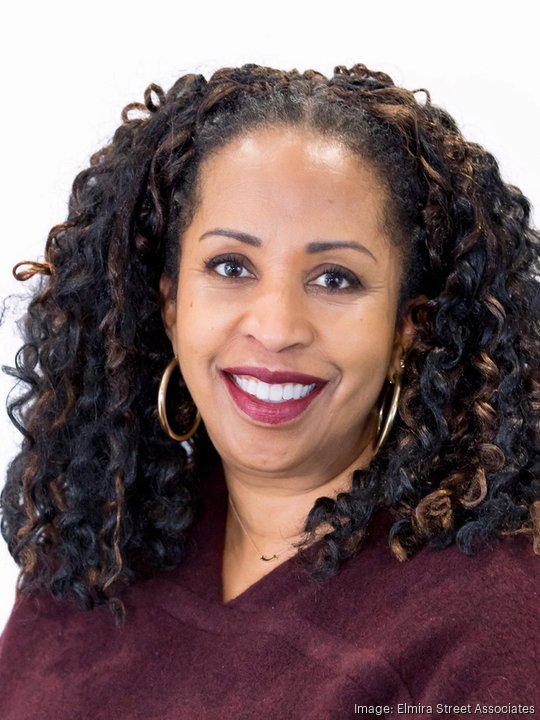
Neferkará was lured to Portland by the Nike job, and even though she'd been in the region for nearly two decades, she said she found new ways to plug into the community when she left the company.
“I’m able to make the time for it and to dive in and look at what’s around. Working at Nike can be very consuming between your responsibilities, traveling and then I also have a son I was raising,” she said. “Now that I have my own consulting practice it’s been a lot of fun learning more about what’s happening in Portland and helping other people make their dreams come true.”
Her Nike experience has helped her do that. Nike is a big company, but Neferkará said that within her various jobs there were elements of entrepreneurship. Teams were multidisciplinary so people were learning from each other and getting involved where needed. The more senior you become, the more cross-disciplinary the job is, she said.
“One of the things I have found as I have moved into board work, I’ve managed budgets that are larger than the revenue lines of many small companies. I know my way around a spreadsheet, I understand how numbers fit into an overall (profit and loss statement),” she said. “Sitting around the table in the boardroom, while I might have been brought onto the board because of my marketing background and e-commerce expertise, I’m also able to think about the numbers.”
Neferkará is invested in four companies, two that were founded by women who are also Nike alums.
“I knew (the founders) from my Nike days and I helped to put together a syndicate driven by former Nike Women,” she said, adding that she is part of various efforts to rally women who have Nike connections to get into angel investing.








